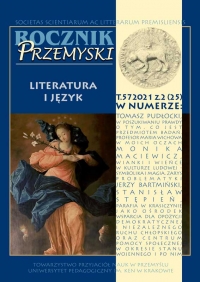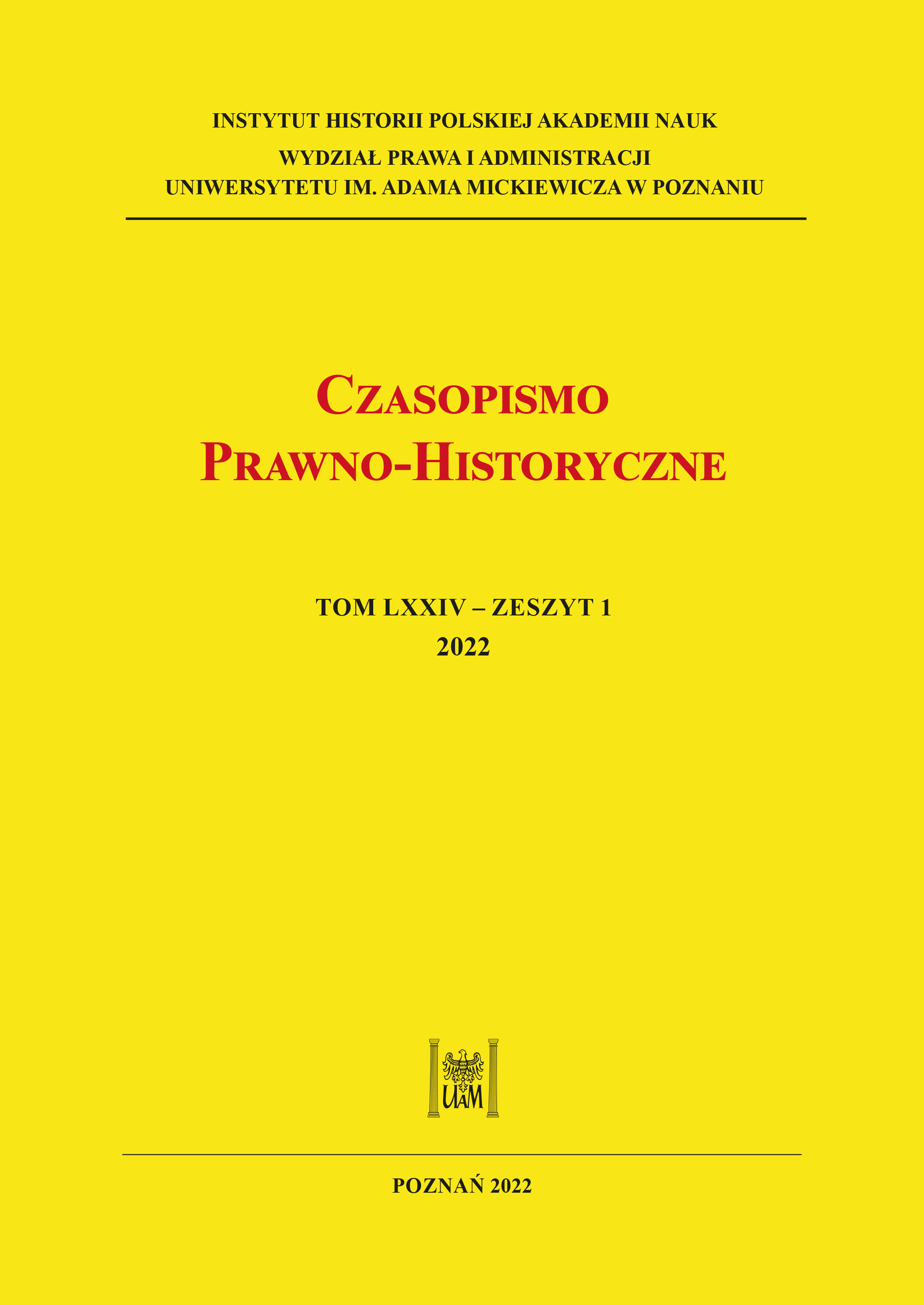
We kindly inform you that, as long as the subject affiliation of our 300.000+ articles is in progress, you might get unsufficient or no results on your third level or second level search. In this case, please broaden your search criteria.



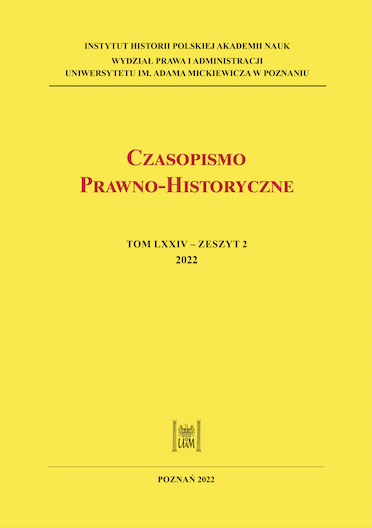


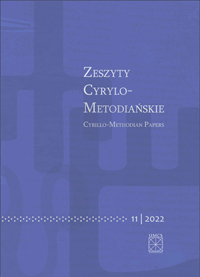
A review of: Duszyński-Karabasz, Henryk. Anthroponymy of Orthodox parishioners in Eastern Kuyavia and Dobrzyń Land in the second half of the 19th century and at the beginning of the 20th century. Bydgoszcz: Kazimierz Wielki University Press, 2022, 322 pp. ISBN 978-83-8018-500-5. [In Polish: Duszyński-Karabasz, Henryk. Antroponimia wiernych parafii prawosławnych na Kujawach Wschodnich i w ziemi dobrzyńskiej w II połowie XIX i w początkach XX wieku. Bydgoszcz: Wydawnictwo Uniwersytetu Kazimierza Wielkiego, 2022, 322 ss.]
More...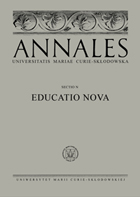
The article is a review of two monographs: Praktyki czytania. Ponowoczesna interpretacja a szkoła of Grażyna Tomaszewska and Praktykowanie lektury of Dariusz Szczukowski, published in 2019. The authors are professors of the University of Gdańsk who meet the expectations of contemporary school and propose ways of working with literary texts that inspire teachers and students, allowing them to open up to the multidimensionality of reading perspectives.
More...
The article is a review of two books that constitute an important voice in the discussion about today’s education: Docenić szkołę. Dydaktyczna teoria i metodyczna praktyka of Maria Kwiatkowska-Ratajczak and Archipelag (nie tylko) dobrych myśli developed by Michał Ratajczak. Their main goal is not only to deepen didactic knowledge, but also to demonstrate the need to change the way of thinking about education today.
More...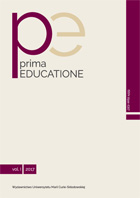
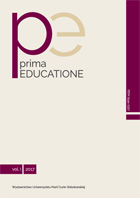
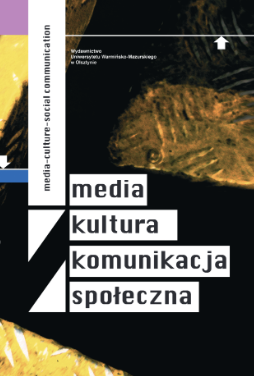
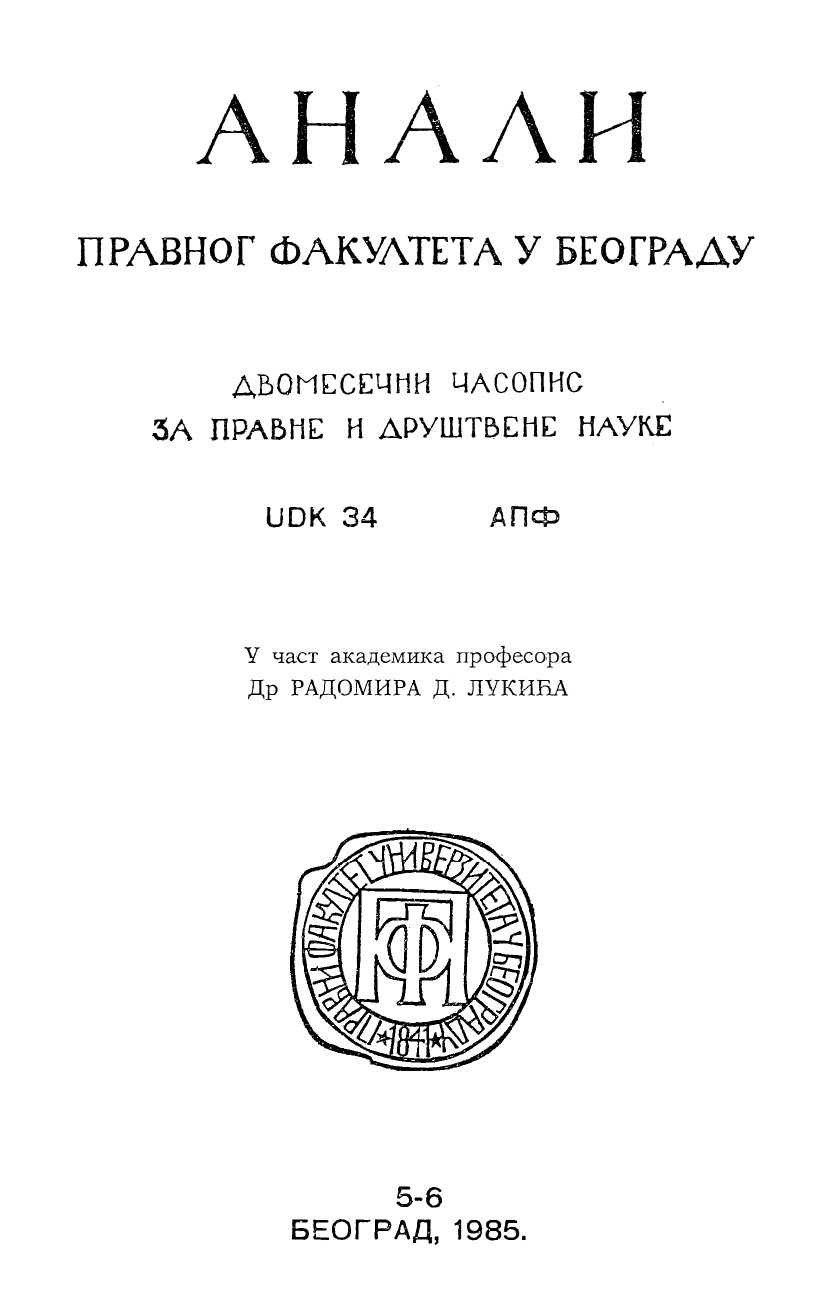
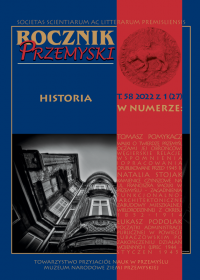
This paper is the second part of the article Letters of Bishop Michał Kuziemski. The sources to discover the history of the Greek Catholic diocese of Chełm previously published in “Rocznik Przemyski. Historia”. It consists of letters translated from Latin and Italian (nos. 16 to 24) published in the book by Fr. Luigi Glinka titled Diocesi ucraino-cattolica di Cholm (Ukrainian Catholic Diocese of Chełm) published in Rome in 1975. It is for the first time that the content of those letters is introduced in Polish historiography.
More...
The article presents the translation and edition of a source: two letters written in December 1914 by a British officer Edward Hulse; it is his account of the events of the Christman truce. The aim of the paper is also to present and discuss the problem of mythologizing that event and changing its perception in historiography.
More...
The second part of the correspondence between Rev. Dr Jan Kwolek (Przemyśl) and Rev. Prof. Jan Fijałek (Kraków) presented here covers eight years: 1928-1936. As for the former priest it was the prime of his spiritual, intellectual and organizational development, whereas the latter was approaching the end of his life, enjoying deserved renown in the field of historical research; he died in 1936.No wonder then that the subject matter of the letters – in vast majority authored by the Przemyśl priest – was largely an account of his successive achievements, in particular in the field of modern organization of the Diocesan Archive which he headed, requests for academic consultations about the formation of a reference library, and discussions on current academic work. Rev. Jan Kwolek would regularly write to his correspondent about concentrating the records from the parish churches of the whole Przemyśl diocese, systematically deposited in Przemyśl. He also used to tell him about the positive reception of his work all over Poland, he shared his joy about significant interest among local theology students in archive work, he did not hide his concern for the fate of the Diocesan Archive due to lack of a successor; finally, he would inform Rev. Fijałek about current events in the local church: changes in managerial positions, deficiencies of the personal policy and his own successive promotions. On the other hand, Rev. Fijałek would spontaneously respond to his younger colleague’s requests, not so much instructing him on the matters of organizing the archive, as that was something Rev. Kwolek managed perfectly well, as indicating the titles of academic books indispensable in an archive library. He did not spare words of praise, which must have been an incentive for the younger priest to keep up the good work.The correspondence makes the reader admire the enormous achievements of one person in the field of establishing in the interwar Przemyśl a second modern research and academic institution (after the Archdiocesan Archive) accessible to historians dealing with matters of the church. The letters published here enhance the reader’s knowledge and awareness by so far unknown facts from the history of research under the aegis of Roman Catholic Church in the Second Republic of Poland.
More...
The authors present a source rarely used in historical research: a commendation of a person delivered on the occasion of their jubilee. By courtesy of the family, an unknown historical source has been edited, concerned with Bohdan Zahaykevycz, one of the major figures in interwar Przemyśl: secondary school teacher, museologist, organizer of cultural activities, brother of Volodymyr Zahaykevych (Deputy Speaker of the Sejm of the Second Republic of Poland and lawyer). After emigrating from Przemyśl, Zahaykevycz was one of the key figures in the life of the Ukrainian diaspora in the USA. This text is supposed to honor his services as a sort of liaison between the past world for American Ukrainians and their postwar reality overseas. It says a lot about what and how was remembered and maintained in the collective memory of the generations living in new reality after 1945, focusing above all on Ukrainian life in Przemyśl in the first half of the 20th century.
More...

